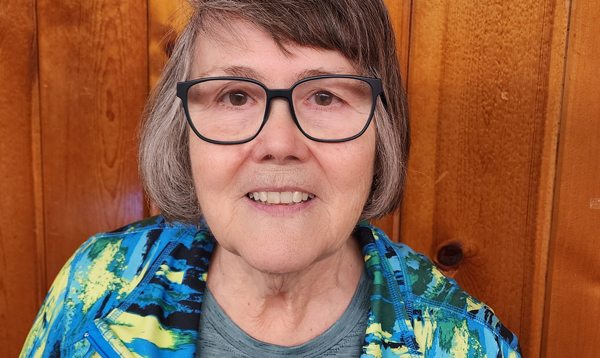
Adult Protective Services News
The Silent Epidemic
Loneliness and Isolation in Older Adults

The golden years of retirement and aging are often envisioned as a time of peaceful leisure and connection. Yet, for many older adults, this chapter is shadowed by a pervasive, and often silent, crisis: loneliness and social isolation. Declared a major public health concern by experts, this challenge is not merely about being alone; it’s a deep disconnection that profoundly impacts health and well-being.
Defining the Disconnect
It’s important to distinguish between the two related, yet different, concepts:
Isolation is an objective state, meaning a measurable lack of social contact and a small social network. An older adult living alone who rarely sees family or friends is socially isolated.
Loneliness is a subjective and distressing feeling — the perceived mismatch between social connections one has and the connections one desires. A person can be surrounded by people in a nursing home or at a family gathering and still feel profoundly lonely.
Studies consistently show that one in three older adults report experiencing loneliness or isolation, a figure that often spikes dramatically for those dealing with chronic illness, disability, or poor mental health.
Causes of Disconnection
A confluence of life changes often makes older adults vulnerable to isolation and loneliness:
- Loss and Bereavement: The death of a spouse, life-long friends, or siblings is one of the most significant triggers for profound loneliness.
- Life Transitions: Retirement removes the daily structure and social interactions of the workplace. Changes in living situation or the loss of a driver’s license can also severely limit a person’s ability to engage with the outside world.
- Physical and Sensory Decline: Impaired mobility, vision loss, or hearing loss can make socializing physically difficult or exhausting, leading to a retreat from public life.
- Geographic Distance: Modern society often sees families spread across states or countries, leaving seniors without their primary support network nearby.
The Serious Health Toll
Loneliness and social isolation are far more than just emotional struggles — they are potent risk factors for serious physical and mental decline. Research has found that the health consequences of being socially disconnected are comparable to the risk of smoking 15 cigarettes a day or having obesity.
Key Health Impacts include:
- Cardiovascular Health: Increased risk of high blood pressure, heart disease, and stroke.
- Cognitive Decline: Higher risk of developing dementia and Alzheimer’s disease.
- Mental Health: Strong association with increased rates of depression, anxiety, and poor sleep quality.
- Immune System: A compromised immune response, leaving one more vulnerable to infections.
- Mortality: Loneliness is independently associated with a significantly increased risk of premature death.
Finding the Way Back to Connection
Addressing this epidemic requires a multi-faceted approach from individuals, families, healthcare providers, and communities.
- Family and Friends: Simple, consistent gestures matter most. Scheduling regular phone calls, video chats, or visits can help. Actively listening and encouraging older adults to discuss their feelings can reduce the subjective pain of loneliness.
- Community Engagement: Encouraging participation in local programs is so important. Options include joining senior centers, enrolling in classes (often free or low-cost), volunteering, or joining faith-based groups. These activities provide both structure and purpose.
- Technology as a Bridge: While not a replacement for in-person contact, technology can be a powerful tool. Video-calling apps can bridge long distances, and engaging in online groups or classes can facilitate new friendships.
- Professional Help: Health care providers are increasingly screening for loneliness. In some cases, behavioral therapies (like cognitive behavioral therapy) can help older adults change their negative thought patterns that can fuel social withdrawal.
Ultimately, combating loneliness and isolation is a shared societal responsibility. By recognizing that social connection is a fundamental pillar of health — as vital as nutrition and exercise — we can help our older adults live lives that are not only longer, but richer and more connected.
If you’re checking in with a loved one and suspect they are neglecting their own needs or a caregiver is neglecting their needs, contact Adult Protective Services at (844) 227-9300 or visit Montana Adult Protective Services online. If you suspect harm is occurring right now, call 911.
Past Issues
More Reports, Stronger Responses
Montana's Efforts to Confront Elder Abuse
Montana’s aging population is growing — and so are the threats against it. From financial exploitation to neglect by trusted caregivers, elder abuse remains an increasingly urgent issue requiring coordinated action from state agencies, lawmakers, and communities.
The scope of abuse has escalated in recent years. In 2021, nearly 4,900 Montanans were documented as victims. By 2022, Adult Protective Services (APS) referrals rose 18%, reaching more than 11,500 cases. In 2024, allegations jumped to over 14,000, with roughly 3,000 involving financial exploitation. APS referred about 300 cases for prosecution.
Not every case leads to criminal charges, but some recent convictions — like one that ended in a 17-year prison sentence — show that serious abuse cases can lead to strong consequences.
World Elder Abuse Awareness Day (WEAAD)
On June 15, 2025, Montana joined the global observance of World Elder Abuse Awareness Day. Events across the state highlighted the importance of early intervention and public awareness, with support from APS, the Department of Justice’s Elder Justice Unit, and regional Elder Justice Councils. Residents were encouraged to report suspected abuse and learn how to recognize the signs — reinforcing public engagement as central to Montana’s protective infrastructure.
Serving Adults with Disabilities and Complex Needs
As one in four Montanans is projected to be age 65 or older by 2030, outreach efforts continue to expand for individuals with physical and cognitive disabilities. The Financial Abuse Specialist Team (FAST), based in the Montana State Auditor’s Office, is a key partner in these efforts. FAST reviews financial exploitation cases within 72 hours and works with institutions, regulators, and law enforcement to coordinate timely intervention.
2025 Legislative Highlights
Several bills passed in the 2025 legislative session build momentum for stronger protections and clearer accountability:
-
HB 532: Strengthens Montana’s criminal statutes to better address abuse, neglect, and exploitation of vulnerable adults and incapacitated persons. It clarifies key definitions — including “neglect” and “personal degradation” — and introduces felony penalties of up to 10 years in prison and $10,000 in fines. It also increases penalties for identity theft involving vulnerable individuals, making elder abuse crimes easier to charge and prosecute.
-
HB 743: Establishes formal reporting requirements for elder exploitation cases. APS must forward credible reports to county attorneys, who are now required to submit annual case data — including charges and sentencing details — to the Attorney General. The Attorney General may request findings for cases declined for prosecution and will report statewide trends to lawmakers. These provisions add transparency and oversight.
-
HB 825: Updates Montana’s health care proxy laws by introducing the “trusted decisionmaker” designation. Patients may identify someone to make medical decisions if they lose capacity. The bill creates a clear decision-making hierarchy and updates the patient bill of rights to strengthen autonomy and clarity in medical emergencies.
-
HJ 26: Authorizes a study of Montana’s guardianship and conservatorship systems, with recommendations due to the 2026 Legislature.
-
SB 296 (Alan’s Law): Increases penalties for offenses against vulnerable persons committed by individuals working or volunteering in caregiving roles. It applies broadly to facilities serving both adults and children.
-
Guardianship Support: APS received budget funding for targeted service enhancements. The 2025 budget provided three permanent staff positions to continue the current 75 state-appointed guardianships.
Looking Ahead
Elder abuse — especially financial exploitation — is often concealed by fear, shame, and isolation. Montana’s recent legislative and programmatic changes reflect meaningful progress, but lasting protection requires ongoing awareness and shared responsibility.
By staying informed and engaged, Montanans can help ensure that aging is met not with vulnerability, but with dignity, safety, and respect.
Spotlight on Advocacy
Susan Bivins's Fight Against Financial Exploitation
Susan Bivins, a retired registered nurse, embraced her retirement years with excitement. After 45 years of dedicated service in Northern California, she relocated to Montana in 2015 to be closer to her family, savoring her new role as a grandmother and immersing herself in fulfilling hobbies like quilting and travel. Life seemed idyllic—until a devastating scam upended her world.
It began innocuously in May of 2022, when Susan noticed unauthorized Amazon purchases. Despite promptly securing her account and receiving a refund, she received a call weeks later from someone claiming to be from Amazon. This call marked the start of an elaborate scheme that spanned weeks. The scammer, posing as a federal agent, manipulated Susan through fear and false assurances, eventually coercing her into transferring over $240,000 — her entire savings and retirement funds — under the pretense of protecting her finances.
The emotional toll was immense. Susan endured weeks of isolation, constant surveillance, and the shame of keeping the ordeal secret. “I was terrified and embarrassed,” she admits. The scammer’s persistent instructions to “not tell anyone” amplified her sense of vulnerability. However, after the scam came to light, Susan’s family and friends rallied around her with unwavering support.
With determination, Susan turned anguish into action. She reported the crime to local and federal authorities, though investigations yielded limited progress. Recognizing the need for awareness, Susan bravely shared her story through local and national media, becoming an advocate for fraud prevention. Her efforts have extended to public speaking engagements, where she emphasizes important lessons:
- Amazon and other companies will not call you directly.
- If someone instructs you to “not tell anyone,” consider it a major red flag.
- Regularly monitor your credit reports and consider placing fraud alerts or security freezes on your accounts.
Susan also highlights practical steps for safeguarding against financial exploitation. Contacting the three major credit bureaus — Experian, Equifax, and TransUnion — to activate “fraud alerts” and “security freezes” can prevent unauthorized accounts from being opened in your name. These services must be renewed annually.
- Experian: experian.com
800-397-3742 - Equifax: equifax.com
800-525-6285 - TransUnion: transunion.com
800-680-7289
If you suspect financial exploitation, contact Adult Protective Services (APS)
at 844-277-9300.
Susan’s courage in sharing her story serves as a powerful reminder of the importance of vigilance and community support. Through her advocacy, she hopes to empower others to recognize the warning signs and prevent similar tragedies
Protecting Montana's Vulnerable Adults from Exploitation
Exploitation of vulnerable adults is a serious issue that affects many Montanans. It involves the abuse of power or trust to take control of a vulnerable adult’s money, assets, or property through deception, coercion, fraud, undue influence, or intimidation. Each year, older adults lose more than $28 billion due to exploitation, with family caregivers and social safety net programs often bearing additional costs.
In Montana, the Adult Protective Services (APS) bureau works tirelessly to address and combat exploitation. In 2023 alone, APS investigated 2,541 reports of exploitation, with the numbers for 2024 trending even higher.
APS is committed to protecting and supporting vulnerable adults in the state, as demonstrated by a recent case where an APS investigation, in conjunction with the FBI and Fergus County Sheriff’s office, led to the conviction of a daughter who stole more than $700,000 from her elderly mother.
This case highlights the importance of vigilance and collaboration in preventing exploitation.
What Can You Do to Prevent Exploitation?
Exploitation can happen to anyone, regardless of socioeconomic status, race, health, disability status, or living situation. It is crucial to educate seniors, professionals, caregivers, and the public on the signs of exploitation and how to prevent it. Here are some steps older adults can take to stay safe.
- Take Care of Your Health: Maintain your physical and mental well-being.
- Seek Professional Help: Address drug, alcohol, and depression concerns, and encourage family members to do the same.
- Plan for Your Future: Establish a power of attorney or a living will to address health care decisions in advance. Seek independent advice before signing any documents.
- Handle Your Own Mail: Post and open your own mail to stay informed.
- Protect Personal Information: Avoid giving out personal information on the phone.
- Use Direct Deposit: Ensure all checks are directly deposited into your bank account.
- Have Your Own Phone: Maintain access to your own phone to stay connected.
- Review Your Will: Periodically review and update your will to reflect your wishes.
- Know Your Rights: If you have a paid or family caregiver, voice your preferences and concerns. If you live in a nursing home facility, contact your long-term care ombudsman, who can advocate on your behalf.
The Path Forward
Addressing the exploitation of vulnerable adults requires ongoing attention and action. Through education, vigilance, and collaboration, we can protect our loved ones and ensure they receive the respect and care they deserve. The APS bureau remains steadfast in its mission to safeguard Montana’s vulnerable adults from exploitation and support their well-being. For more information and resources, visit the National Council on Aging’s website. Let’s work together to build a safer and more respectful community for all.
What Should I Do if I Suspect Abuse of A Vulnerable Adult?
Adult Protective Services specialists help protect vulnerable adults from abuse, neglect and exploitation. They help end abuse by matching the needs of the person with community partners in their area, such as mental health professionals, public health officials, law enforcement, the courts, the aging network, and other community groups.
- If you suspect harm is occurring right now, call 911
- If the concern is not life-threatening, you can call 1-844-277-9300 or contact Adult Protective Services online.
- If you would like more info about APS, contact Senior and Long Term Care to get a brochure: 1-406-444-4077
Guardianship and Beyond
How Adult Protective Services Supports Well-Being of Vulnerable Adults

Gguardianship plays an important role in protecting vulnerable adults in Montana, and Adult Protective Services (APS) is at the forefront of managing these cases for the Department of Public Health and Human Services (DPHHS).
Since 2021, APS has dedicated a specialized social services unit to oversee guardianship cases, ensuring individuals receive the support and protection they need.
Initially, this unit, funded by a grant, was formed with four full-time staff members to manage 120 guardianship cases. Before this, APS investigators handled guardianship cases alongside investigations into adult maltreatment.
The rising reports of abuse, neglect, and exploitation created challenges, often leading to potential conflicts of interest for investigators serving both roles.
Today, APS has five grant-funded social services workers responsible for 77 active guardianship cases, as well as all new appointments.
While guardianship is the most restrictive form of decision-making, APS works diligently to prioritize less restrictive alternatives whenever possible. By helping individuals explore these options, APS ensures guardianship is pursued only when absolutely necessary.
The social services unit has successfully advocated for individuals no longer needing guardianship, transferring cases to family members when suitable relatives are available and willing to serve.
APS also collaborates with county attorneys to petition the court for guardianship when investigations reveal a vulnerable adult lacks decision-making capacity and requires protection to reduce the risk of harm.
In cases where no family member or qualified individual is available, a judge may appoint a state or federal agency to serve as guardian, ensuring the individual’s safety and well-being.
Additionally, APS works closely with Child Protective Services (CPS) to create a clear pathway for children in state custody who will need alternative decision-makers once they transition into adulthood. This collaboration guarantees these individuals continue to receive the necessary support services as they mature.
APS remains committed to ensuring guardians act responsibly and ethically.
Through educational outreach and training, APS provides stakeholders with clear guidelines on the roles and responsibilities of a guardian, promoting proper care and compliance with state rules. The agency is also working to establish a standard of practice that safeguards the rights and well-being of those under guardianship, prioritizing their dignity and autonomy whenever possible.
What Should I Do if I Suspect Abuse of A Vulnerable Adult?
Adult Protective Services specialists help protect vulnerable adults from abuse, neglect, and exploitation. They help end abuse by matching the needs of the person with community partners in their area, such as mental health professionals, public health officials, law enforcement, the courts, the aging network, and other community groups.
- If you suspect harm is occurring right now, call 911
- If the concern is not life-threatening, you can call 1-844-277-9300 or contact Adult Protective Services online.
- If you would like more info about APS, contact Senior and Long Term Care to get a brochure: 1-406-444-4077
Lianna Waller: A Dedicated Leader in Adult Protective Services
 Lianna Waller has just been appointed the interim bureau chief of Adult Protective Services (APS) at the Montana Department of Public Health and Human Services (DPHHS) Senior and Long-Term Care Division. She steps into this role as the previous bureau chief, Trevor Tangen, becomes the interim administrator for the Senior and Long-Term Care Division. Lianna has built a remarkable career dedicated to social services, significantly impacting Montana’s most vulnerable populations.
Lianna Waller has just been appointed the interim bureau chief of Adult Protective Services (APS) at the Montana Department of Public Health and Human Services (DPHHS) Senior and Long-Term Care Division. She steps into this role as the previous bureau chief, Trevor Tangen, becomes the interim administrator for the Senior and Long-Term Care Division. Lianna has built a remarkable career dedicated to social services, significantly impacting Montana’s most vulnerable populations.
Her journey in APS began in 2017 when she joined as an investigator. Since then, her commitment and leadership have been evident. In 2021, Lianna became the first social services sorker at APS, where she created the APS guardianship unit. She managed this unit until her promotion to Section Supervisor, the second in command. In this role, she oversaw both the guardianship unit and APS Intake. Her tenure as section supervisor demonstrated her exceptional ability to handle multiple responsibilities and improve service delivery processes.
From June 2022 to August 2023, Lianna served as the acting bureau chief while Trevor was deployed overseas for military service. During this period, she ensured APS continued to operate smoothly, maintaining the high standards expected by the department.
“She’s the go-to for all things APS, an outstanding leader,” said Trevor. “She is always looking to improve processes to ensure the elderly and disabled adults in Montana receive the best service possible.”
Lianna’s academic background laid a strong foundation for her career. She graduated from the University of Montana in 2009 with a bachelor’s degree in biology and secondary education, along with a minor in psychology. She resides with her husband, their 11-year-old daughter, and two dogs. Outside of her professional life, she enjoys spending time in the mountains, camping, hiking, skiing, and simply being outdoors. Her love for the outdoors reflects her upbringing in Missoula and her appreciation for the natural beauty of Montana.
Lianna’s passion for helping others emerged early in her life. During her high school years, she lettered for the number of volunteer hours she accumulated, many of which were spent at the Poverello Center, a shelter for the unhoused, and at a local assisted living center as an activities and crafts director. This strong desire to help others led her to a career in social services aimed at reducing risks for vulnerable populations across Montana.
In 2014, Lianna started working for the State of Montana as a child protection specialist before transitioning to Adult Protective Services in 2017. Her experience in both child and adult protective services has equipped her with a comprehensive understanding of the challenges faced by different vulnerable groups and the best practices to support them.
Lianna’s dedication to APS is evident in her words and actions. “I love the work that APS does and feel proud to represent all our staff who work incredibly hard to ensure that Montana’s most vulnerable are safe and protected,” she said. As the interim bureau chief, she aims to continue the great work APS does every day and to ensure that the staff feel supported and valued.
Her favorite quote, “You live two lives: the one you are living and the one you begin living after you learn you only have one life,” resonates deeply with her approach to both her personal and professional life. This philosophy underscores her commitment to making a meaningful impact through her work and encouraging others to do the same.
Lianna Waller’s career exemplifies dedication, leadership, and a deep-seated passion for helping others. Her journey from an investigator to the interim bureau chief of APS demonstrates her unwavering commitment to improving the lives of Montana’s elderly and disabled adults. With her at the helm, APS continues to strive for excellence in protecting and serving the state’s most vulnerable populations.



